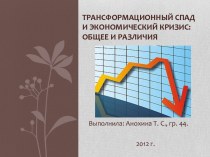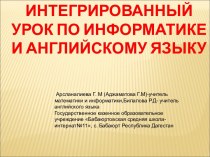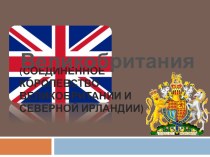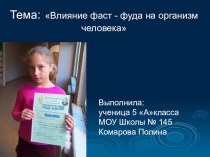- Главная
- Разное
- Бизнес и предпринимательство
- Образование
- Развлечения
- Государство
- Спорт
- Графика
- Культурология
- Еда и кулинария
- Лингвистика
- Религиоведение
- Черчение
- Физкультура
- ИЗО
- Психология
- Социология
- Английский язык
- Астрономия
- Алгебра
- Биология
- География
- Геометрия
- Детские презентации
- Информатика
- История
- Литература
- Маркетинг
- Математика
- Медицина
- Менеджмент
- Музыка
- МХК
- Немецкий язык
- ОБЖ
- Обществознание
- Окружающий мир
- Педагогика
- Русский язык
- Технология
- Физика
- Философия
- Химия
- Шаблоны, картинки для презентаций
- Экология
- Экономика
- Юриспруденция
Что такое findslide.org?
FindSlide.org - это сайт презентаций, докладов, шаблонов в формате PowerPoint.
Обратная связь
Email: Нажмите что бы посмотреть
Презентация на тему Presentation: Natural disasters
Содержание
- 2. Wildfire
- 3. Avalanche An avalanche is a
- 4. Sukhovey Relative humidity is less
- 5. Vulcanian eruption Vulcanian eruptions display several
- 6. TornadoA tornado is a violently rotating column
- 7. TsunamiA tsunamiis a series of water waves
- 8. Earthquake An earthquak is the
- 9. Скачать презентацию
- 10. Похожие презентации
Wildfire A wildfire is an uncontrolled fire in an area of combustible vegetation that occurs in the countryside or a wilderness area. A wildfire differs from other fires by
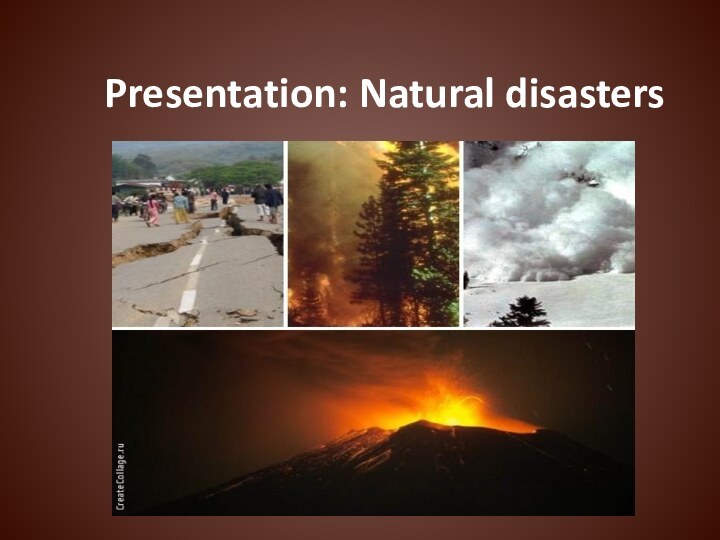
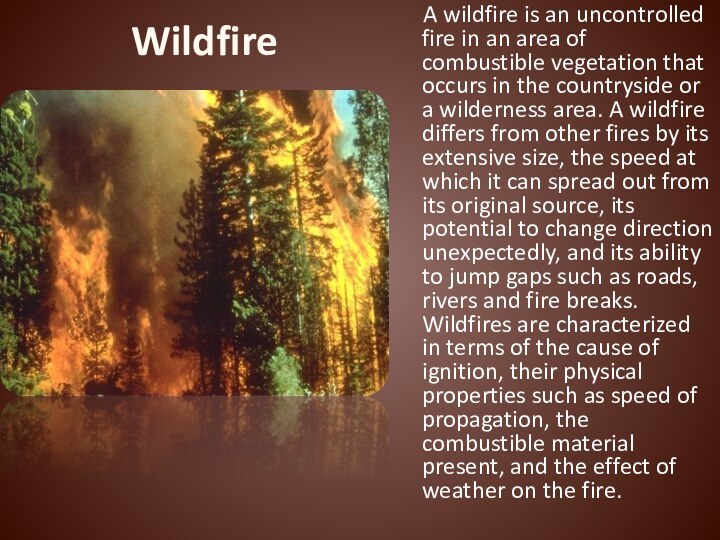
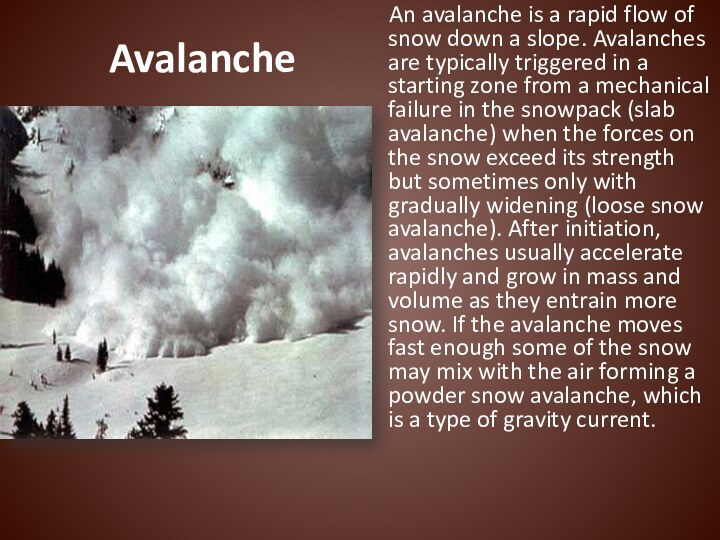

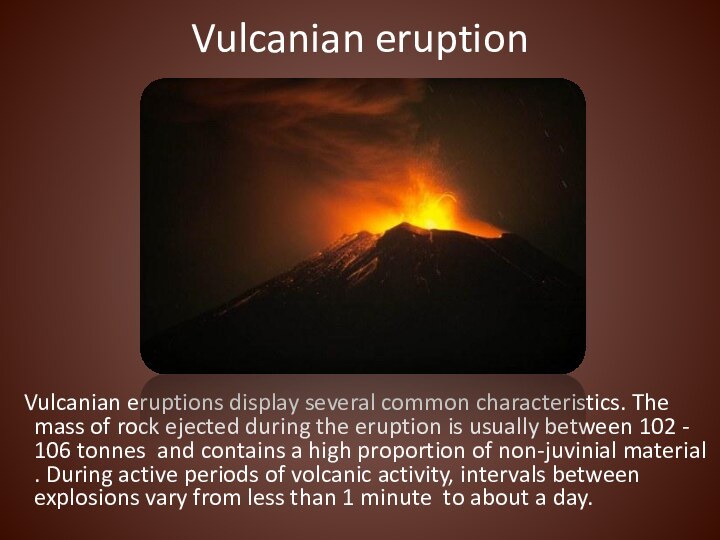
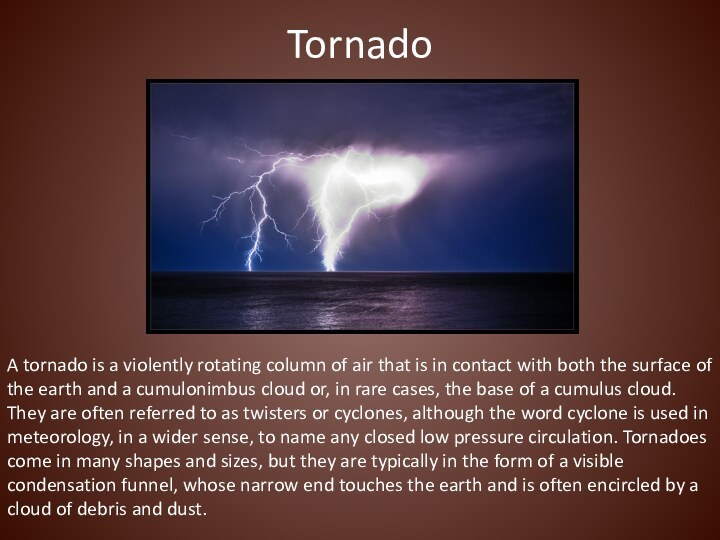
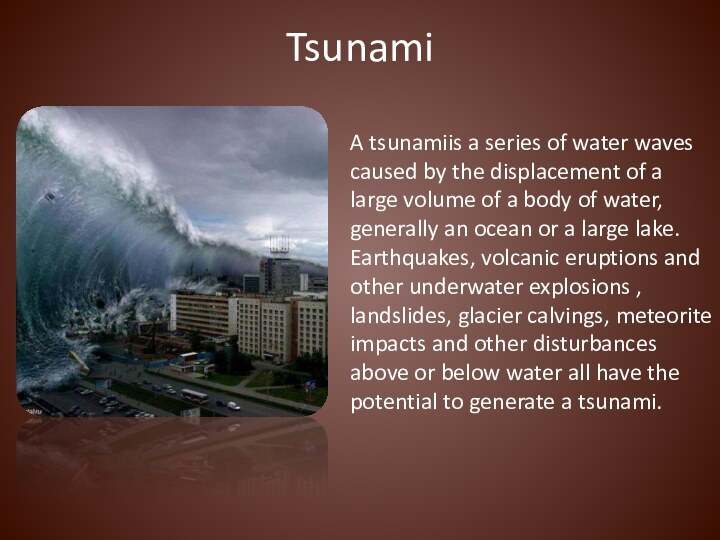
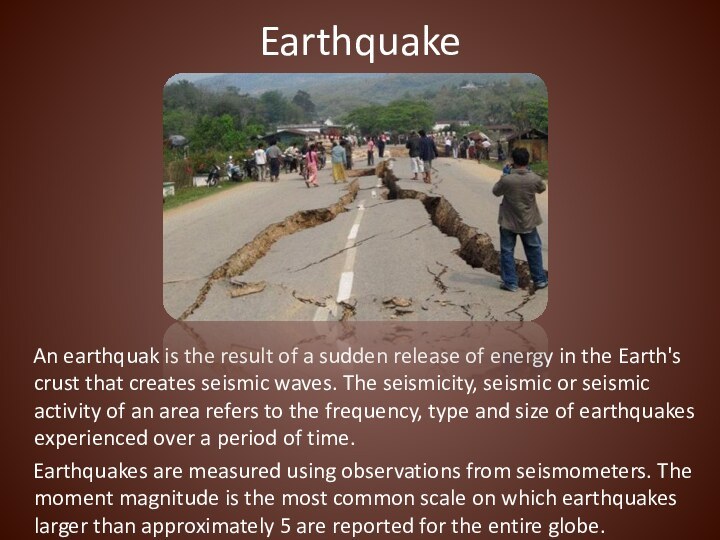

Слайд 3
Avalanche
An avalanche is a rapid
flow of snow down a slope. Avalanches are typically
triggered in a starting zone from a mechanical failure in the snowpack (slab avalanche) when the forces on the snow exceed its strength but sometimes only with gradually widening (loose snow avalanche). After initiation, avalanches usually accelerate rapidly and grow in mass and volume as they entrain more snow. If the avalanche moves fast enough some of the snow may mix with the air forming a powder snow avalanche, which is a type of gravity current.
Слайд 4
Sukhovey
Relative humidity is less than
30%. Sukhovey emanates from the periphery of anticyclones in
summer predominantly with the intrusion of the tropical masses of air . At a high air temperature (20-25°C and above) the sukhovey causes strongly increasing evaporation from the soils.The low mobility of anticyclones causes the steady duration of the sukhovey over several days, which with the insufficient soil moisture causes drought, spoiling of the harvests of cereal and fruit crops, loss of plants. The warm and dry air masses originate above the deserts of Africa, Asia Minor, and also in South Kazakhstan, and with them sukhoveys are extended to the wooded plains of Russia and Kazakhstan, but more frequently they invade the semi-deserts and the steppes.
Слайд 5
Vulcanian eruption
Vulcanian eruptions display several common
characteristics. The mass of rock ejected during the eruption
is usually between 102 - 106 tonnes and contains a high proportion of non-juvinial material . During active periods of volcanic activity, intervals between explosions vary from less than 1 minute to about a day.
Слайд 6
Tornado
A tornado is a violently rotating column of
air that is in contact with both the surface
of the earth and a cumulonimbus cloud or, in rare cases, the base of a cumulus cloud. They are often referred to as twisters or cyclones, although the word cyclone is used in meteorology, in a wider sense, to name any closed low pressure circulation. Tornadoes come in many shapes and sizes, but they are typically in the form of a visible condensation funnel, whose narrow end touches the earth and is often encircled by a cloud of debris and dust.
Слайд 7
Tsunami
A tsunamiis a series of water waves caused
by the displacement of a large volume of a
body of water, generally an ocean or a large lake. Earthquakes, volcanic eruptions and other underwater explosions , landslides, glacier calvings, meteorite impacts and other disturbances above or below water all have the potential to generate a tsunami.
Слайд 8
Earthquake
An earthquak is the result
of a sudden release of energy in the Earth's
crust that creates seismic waves. The seismicity, seismic or seismic activity of an area refers to the frequency, type and size of earthquakes experienced over a period of time.Earthquakes are measured using observations from seismometers. The moment magnitude is the most common scale on which earthquakes larger than approximately 5 are reported for the entire globe.









